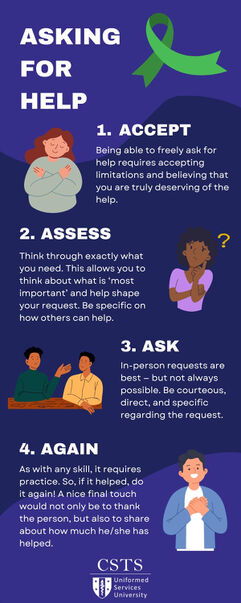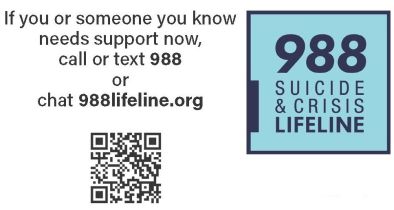May is Mental Health Awareness Month

May is Mental Health Awareness Month. This month, we join organizations such as the Substance Abuse and Mental Health Services Administration (SAMHSA), National Institute of Mental Health (NIMH), and Military Health System in recognizing, honoring, and increasing awareness of mental health. CSTS works year-round to bring scholarly and research oriented problem solving to mental and behavioral health problems, and this month, we aim to highlight our resources, research, and more related to mental health and well-being, including suicide, family violence, and help-seeking, to support a range of individuals and communities.
CSTS FACTSHEETS
Asking for Help: Do You Know How? (For Family)
What Military Families Should Know About Depression
Find more fact sheets related to mental health HERE
INFOGRAPHICS
ORGANIZATIONS
Substance Abuse and Mental Health Services Administration (SAMHSA)
National Institute of Mental Health (NIMH)
National Alliance on Mental Illness
Anxiety and Depression Association of America
NATIONAL SUICIDE PREVENTION HOTLINE
FOR IMMEDIATE ASSISTANCE |








